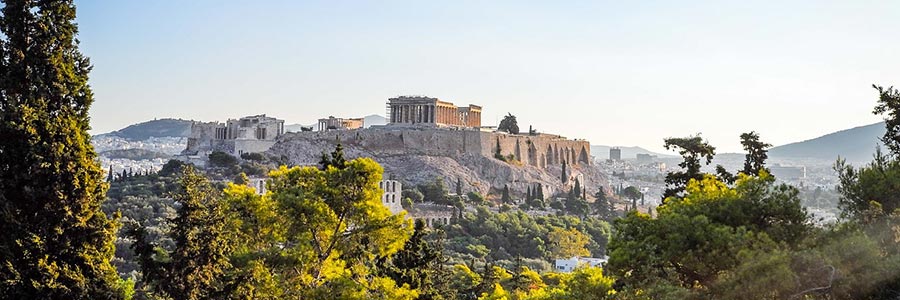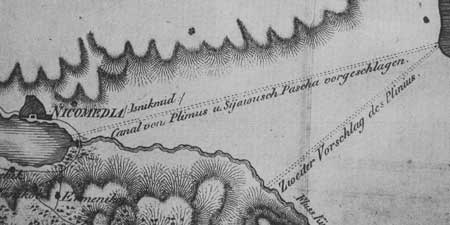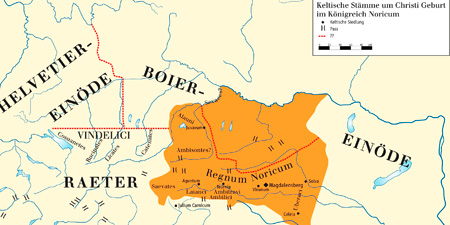Mithridates VI - powerful king of Pontus
- Written by Portal Editor
- Category: Antiquity
- Hits: 3547

Mithridates (132 BC - 63 BC), known as Eupator Dionysus, went down in history as one of the great opponents of the Romans' attempts at expansion.

Classical antiquity differs from previous and subsequent epochs through common and consistent cultural traditions, the influence of which continues to be influential in many subject areas right up to modern times. It covers the history of ancient Greece, Hellenism and the Roman Empire. The Roman Empire politically unified the Mediterranean from the 1st century AD. Rome's cultural influence was primarily felt in the western part of the empire, while in the east the Greek-Hellenistic tradition (Byzantium) continued alongside oriental traditions until it was pushed back in the course of Islamic expansion (from 632 AD).
In a broader sense, antiquity also includes the history of the ancient Near Eastern civilizations of Egypt, Mesopotamia (Sumer, Akkad, Babylonia, Assyria), the Iranian region (Elam, Media, Persia) and Asia Minor (Phoenicia, Israel, Aram-Damascus). around the beginning of writing around 3500 BC. BC began. This larger period of about 3500 B.C. BC to the end of antiquity is preferably referred to as antiquity to distinguish it from the narrower concept of antiquity limited to the Greco-Roman world, or it is used in relation to the Middle East until its incorporation into the Macedonian-Greek sphere of influence under Alexander the Great ( around 330 BC) spoken by the Ancient Near East.

Mithridates (132 BC - 63 BC), known as Eupator Dionysus, went down in history as one of the great opponents of the Romans' attempts at expansion.

“50 kilometers long, 150 meters wide and 25 meters deep - the project planned by the former Turkish Prime Minister Erdogan, who is now president, is gigantic.

We had walked back from Heidentor along Heidentorgasse to the centre of Petronell-Carnuntum, then followed the signs to the military camp on the main road.

After an extensive tour through the amphitheatre and the gladiator school outside the civilian city of Carnuntum, we made our way to the Heidenor.

After we had thoroughly inspected the amphitheatre during our tour, we noticed a wooden structure in the immediate vicinity that had also sparked our interest: the so-called gladiator school.

Next to the Roman military camp of Carnuntum, which was located directly on the banks of the Danube on the Pannonian Limes, the civilian city of Carnuntum developed in quick steps in addition to the military camp until it became the administrative centre of the Roman province of Pannonia at the beginning of the 2nd century AD.

When you think about the Roman era and then use the term “games”, almost everyone who has dealt with the Roman era thinks of the gladiatorial fights in arenas such as Avenches in Switzerland, of chariot races in stadiums like that of Afrodisias or theater performances like in the imposing theater of Aspendos.

At first, it was just a poster on the banks of the Traun, which drew our attention to the Roman past of the modern town of Wels.

At latest with the finding of the map Tabula Peutingeriana many locations along the Roman roads are to be assigned to today's cities.

In many countries of our world the owl is considered as a bird of wisdom and it was same in ancient Athens already, where the little owl was considered a symbol of wisdom too.

Although the saying, "Everything flows ..." was later attributed to the Greek philosopher Heraclitus of Ephesus as a result of his philosophies, this approval has survived until today.

The area at the mouth of the river Sava into the Danube, now place of the Serbian capital Belgrade, has been continuously inhabited since the middle of the Palaeolithic period.

The technical and organizational concerns in the Roman building technique during the Roman Empire are also based on Hellenistic values. In his work De architectura libri decem (22 BC) the Roman officer Vitruvius describes the techniques and mathematical foundations adopted from the Greeks.

From the Celtic kingdom, under the leadership of the Noric tribe, a Roman province of the same name had emerged, which was assigned to the Roman Empire with its capital Virunum (now Zollfeld near Maria Saal).

Noricum was once a Celtic kingdom under the leadership of the Noric tribe on a large part of the territory of present-day Austria as well as adjacent regions of Bavaria (east of the Inn) and Slovenia, which later became a province of the Roman Empire under the designation Provincia Noricum.

Always people tried to work in the field of medical treatment to help others when injured or helpless. Some big steps could be done in Greek and Roman period because of development in research and for the first time experiences were written down.

Involvement of human beings with water goes back to earliest days of history. In the prehistoric ages, prior to the transition from nomadic existence to forming permanent settlements, water usage was partially a part of nature that could not be controlled.

As a part of our project development "A journey of Intimacy and Culture along the Roman Roads" to create a concept for modern Camper routes to the south our route direction inevitably leads over the Alps.